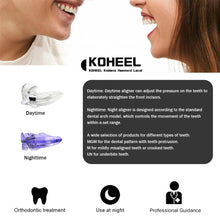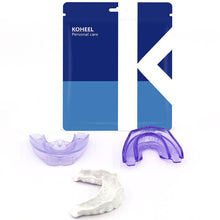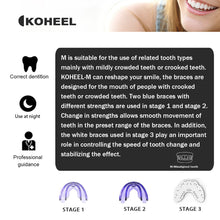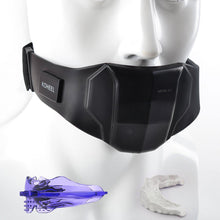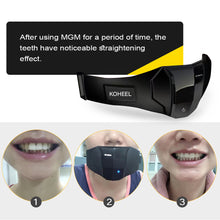Crooked teeth are a common dental problem. While many factors can contribute to crooked teeth, genetics plays a significant role. Your genes determine the size of your jaw, the shape of your teeth, and how they fit together. If your parents have crooked teeth, there's a high chance that you will too. However, genetics is not the only factor that causes crooked teeth. Other factors like thumb-sucking, tongue thrusting, and poor oral habits can also contribute to crooked teeth.
If you have crooked teeth due to genetics, there are several treatment options available. Orthodontic treatments like braces and clear aligners can help straighten your teeth and improve your bite. In some cases, orthodontic treatment may also be necessary to prevent other dental problems like gum disease, tooth decay, and jaw pain. Additionally, maintaining good oral hygiene practices like brushing twice a day, flossing daily, and visiting your dentist regularly can help keep your teeth healthy and prevent further dental issues.
The Relationship Between Oral Health and Crooked Teeth
Crooked teeth not only affect your appearance but can also impact your oral health. Misaligned teeth can make it difficult to clean all surfaces of your teeth, leading to an increased risk of tooth decay, gum disease, and bad breath. Crooked teeth can also cause uneven wear on your teeth, leading to chipping, cracking, or even tooth loss.
Additionally, crooked teeth can cause problems with your bite, which can lead to speech difficulties and jaw pain. Over time, a misaligned bite can also cause temporomandibular joint (TMJ) disorder, a painful condition that affects the joints that connect your jawbone to your skull.
To maintain good oral health with crooked teeth, it's essential to practice good oral hygiene habits like brushing twice a day, flossing daily, and visiting your dentist regularly. Your dentist may also recommend orthodontic treatment to correct your misaligned teeth and improve your bite.
How to Maintain Good Oral Hygiene While Wearing Braces for Crooked Teeth
Maintaining good oral hygiene is crucial when wearing braces for crooked teeth as braces can make it difficult to clean your teeth effectively. Here are some tips for maintaining good oral hygiene while wearing braces:
1. Brush after every meal. Food particles can easily get stuck in your braces, leading to plaque buildup and tooth decay. Use a soft-bristled brush and fluoride toothpaste to clean your teeth and braces thoroughly.
2. Floss daily. Flossing with braces can be challenging, but it's essential to remove food particles and plaque from between your teeth and braces. Use a floss threader or interdental brush to make flossing easier.
3. Use mouthwash. Mouthwash can help kill bacteria and freshen your breath. Look for a mouthwash that's free of alcohol, which can cause dry mouth and other dental problems.
4. Avoid hard, sticky, and sugary foods. These types of foods can damage your braces and cause tooth decay. Stick to soft, healthy foods like fruits, vegetables, and lean proteins.
By following these tips and maintaining good oral hygiene habits, you can keep your teeth and braces clean and healthy throughout your orthodontic treatment.

